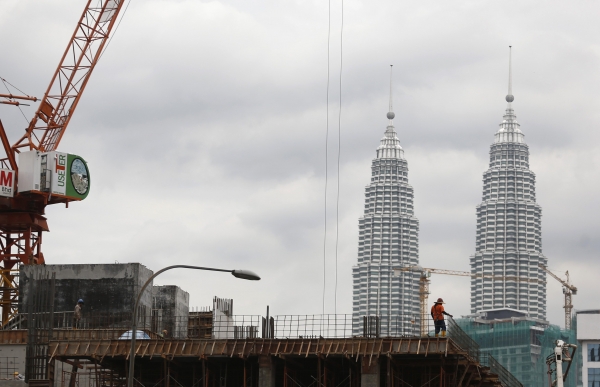KUALA LUMPUR, April 17 — A growing glut in the luxury property segment here is pushing some owners to shave nearly a third off their asking prices in order to secure a sale or rental.
According to data from the National Property Information Centre (NAPIC) on residential homes here valued at over RM1 million, unsold units increased by over 9 per cent from the first quarter of 2014 to the same period a year later.
Cumulatively, this was equivalent to RM158 million worth of surplus units in the luxury home segment, based on figures from the first quarter comparison alone. Figures for subsequent quarters are not yet available.
Property agents speaking to Malay Mail Online also noted that the phenomenon was especially prevalent in the secondary market, saying owners in the Klang Valley, Penang, and Johor were now prepared to lower their asking prices.
“If you look at the property market in KLCC and KL Sentral, owners are willing to rent out office spaces and homes for RM3 and RM4 per square feet compared to RM7 and RM8 before 2013,” senior property consultant Jeremy Jr told Malay Mail Online when contacted.
“Owners lowering the price of their properties by 20 to 30 per cent is also becoming a norm these days,” the agent from Oriental Realty added.
The drop is also fuelling a vicious cycle. Lower rental yields are making it harder for owners to meet their mortgage payments, leading some to sell off their units at discounted prices, which in turn affects rental prices further.
With an excess of luxury property, Jeremy also said new launches were being affected.
Property firms are now aggressively promoting their new developments in the hopes of meeting sales targets, he said, albeit noting that they have so far resisted blatant price-cutting.
“Freebies like kitchen cabinets, plaster ceilings, 0 per cent down payment… these are among other (offers) developers give out these days to sell their new launches,” he said.
The zero down payment is effectively a 10 per cent discount on the list price.
The realtors who spoke to Malay Mail Online declined to speculate on reasons for the drop in demand for luxury property, but a study released in January by property investment firm JLL Malaysia attributed the decline to the slump in the financial services as well as the oil-and-gas sectors.
Depressed oil prices have hit the once-lucrative O&G industry hard, with even state oil firm Petronas resorting to layoffs. O&G expatriates were some of the main takers of high-end property, but are now a relative rarity.
“Sales and rentals for properties valued at more than RM1 million have been very slow in the past four years or so,” said property agent Michael Lim
“After almost six months, I just sold one condo in KL for RM1.2 million recently after the owner was willing to reduce the price by RM300,000,” he said.
More recent data from NAPIC also showed a general decline in transactions within the luxury home segment. From the second quarter to the third quarter of 2016, total transactions dropped from 2,014 to 1,826 — a 9.3 per cent decline.
The same was seen with high-end commercial properties that fell 10 per cent in the same period.
For Lim, however, the falling prices were not entirely negative. Buyers, for instance, could take advantage of the situation and get property in the area for up to a third less than the previous asking price.
But he conceded that the long-term effects would be detrimental to the overall development and area.
“If everyone is selling off their property for 20 to 30 less in a particular area, the value of the development will definitely start dropping,” he said.
When contacted, Malaysian Institute of Estate Agents (MIEA) past president Siva Shanker concurred with the property agents on the weak demand for high-end property.
Siva said that renting out expensive property would also be difficult as owners could only afford to go so low before it was no longer worthwhile.
“At some point, the asking price will be similar to the price at which they bought the property about three years ago, which makes no sense any more to sell because they are definitely going to lose money,” he said.
He predicted that the property market would grow in 2020.



















